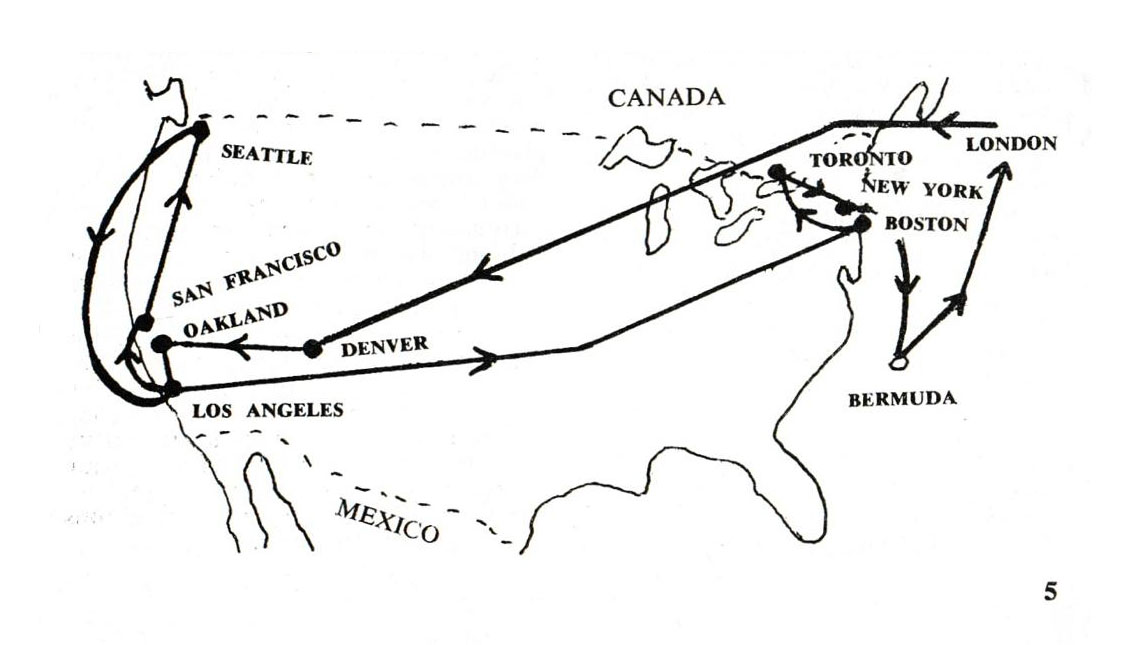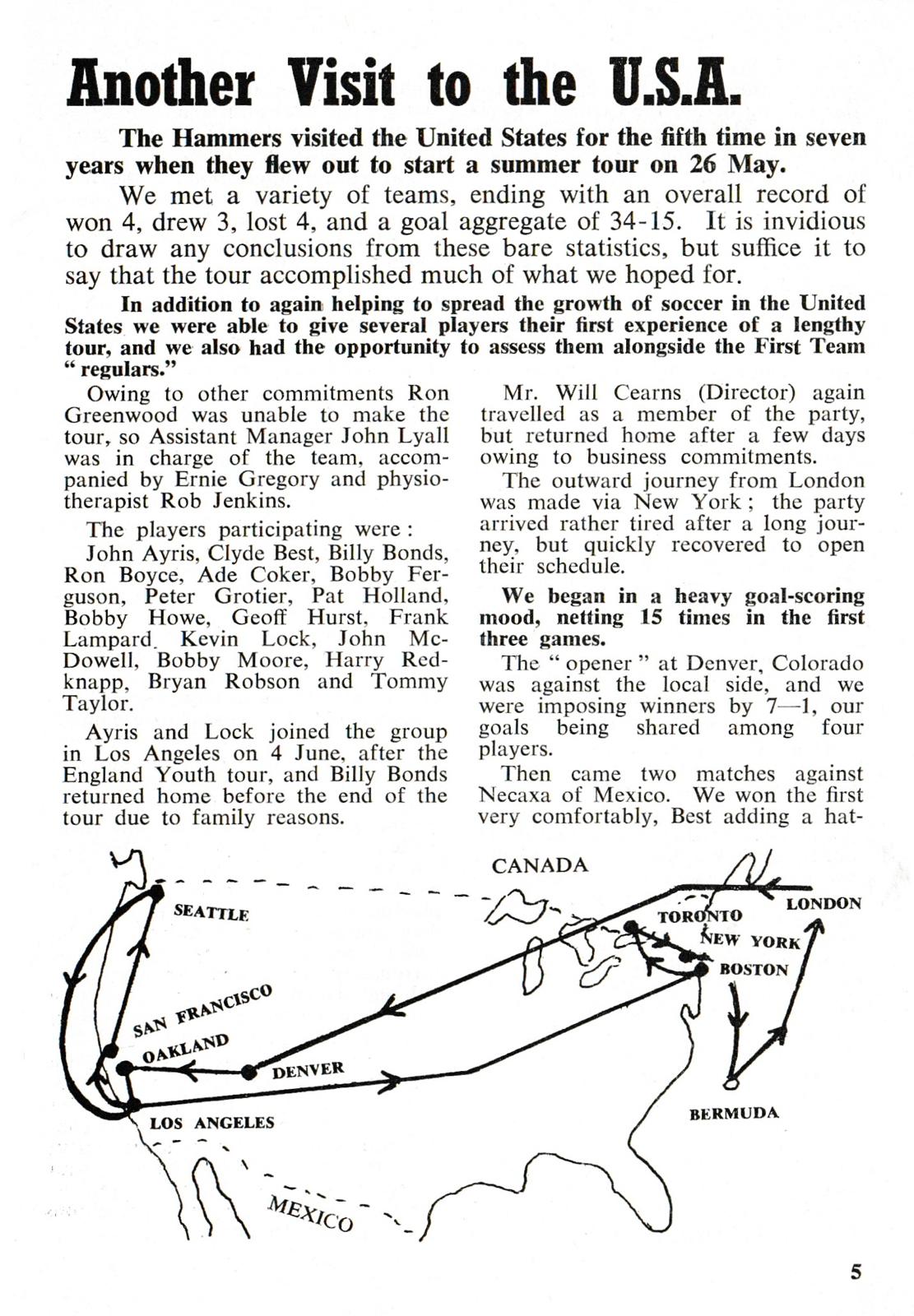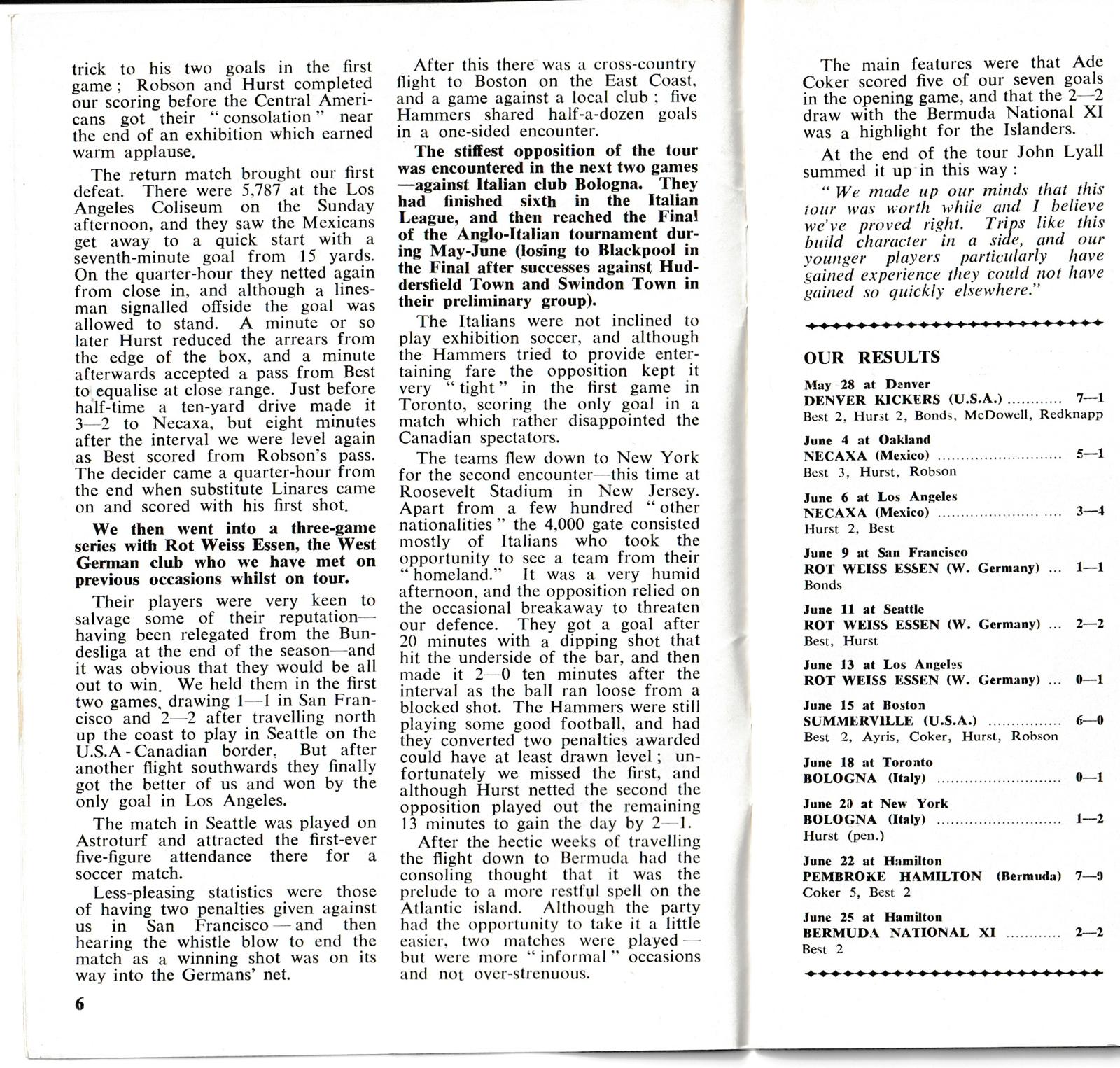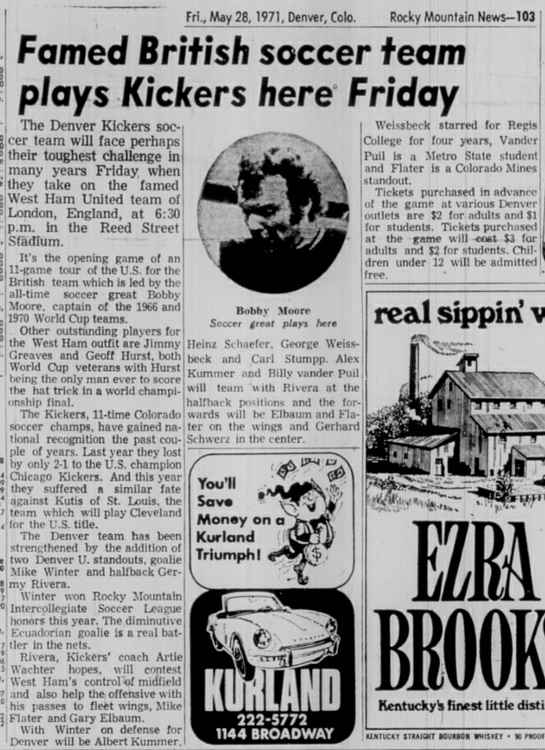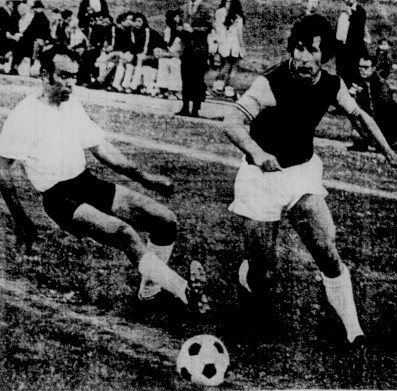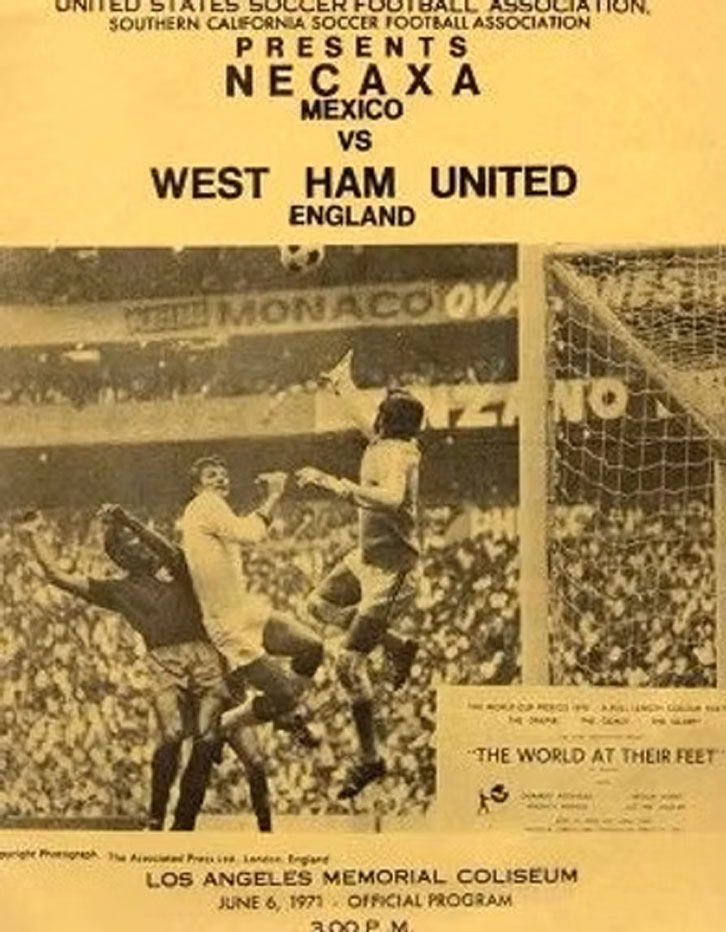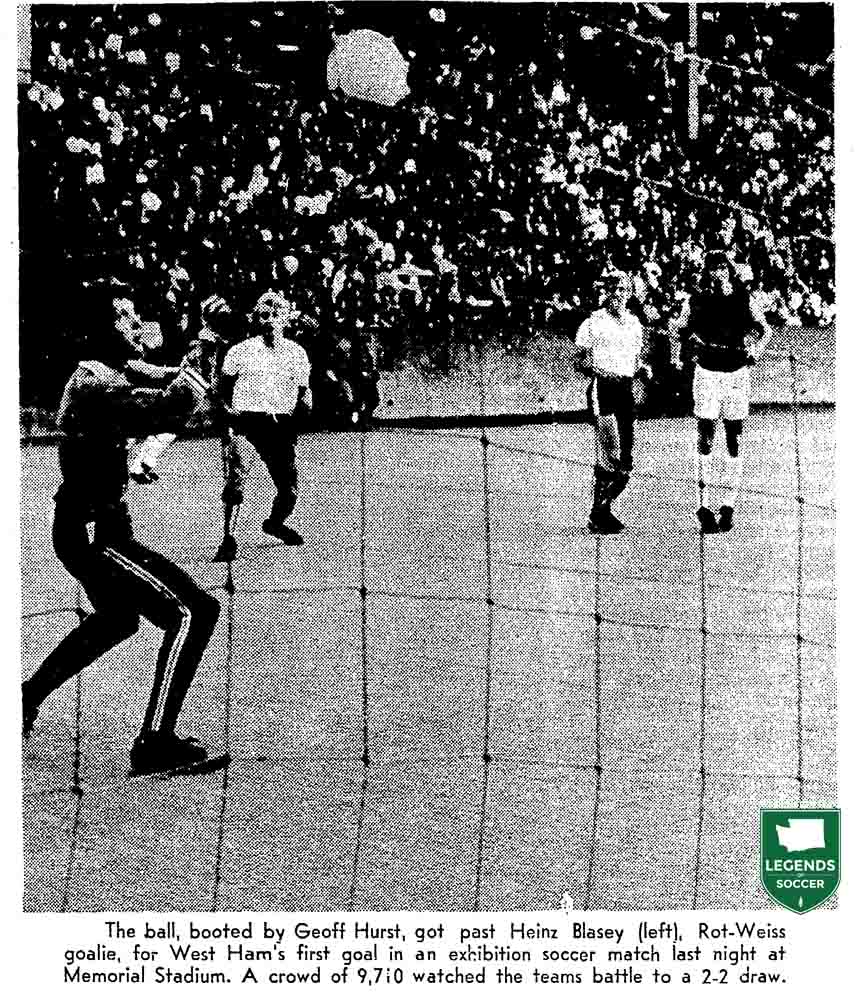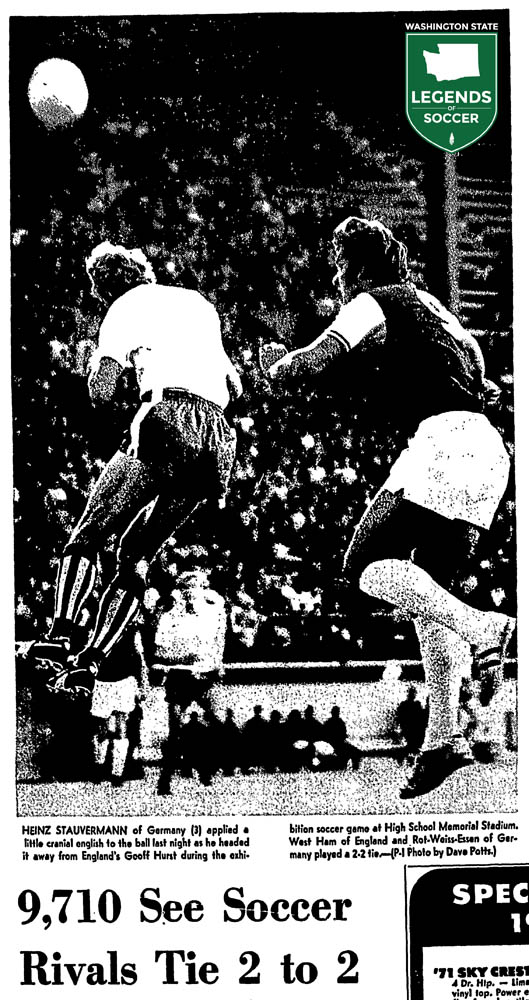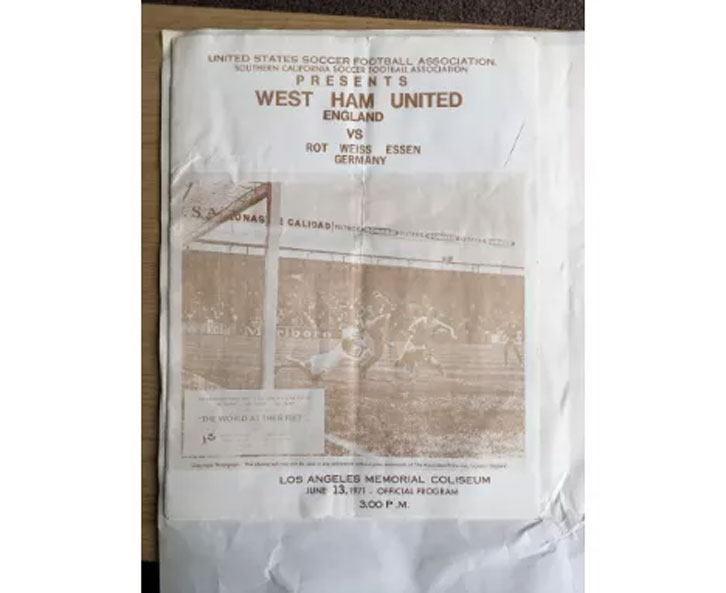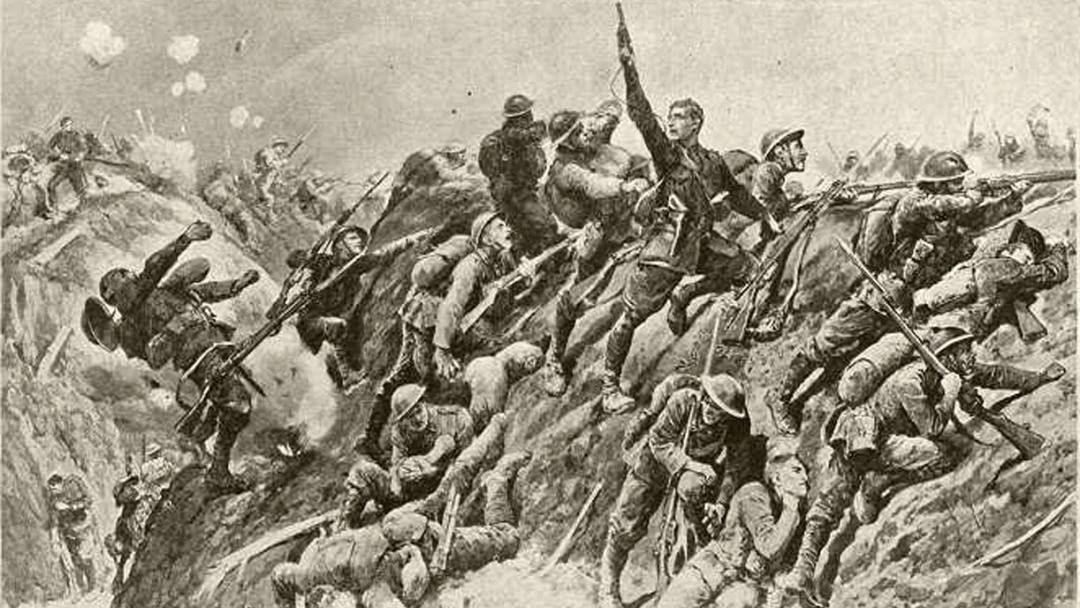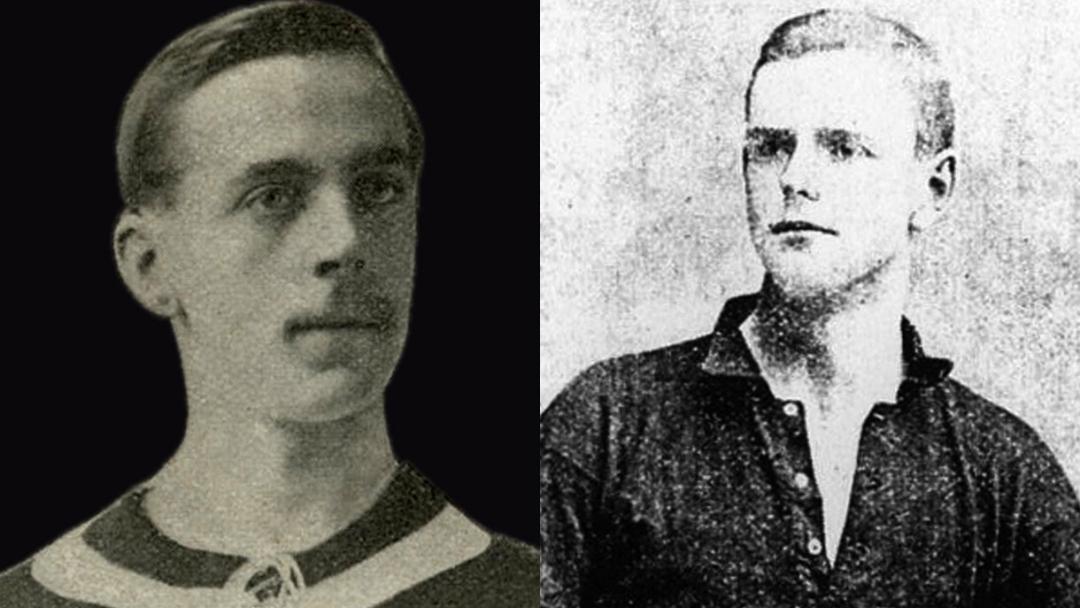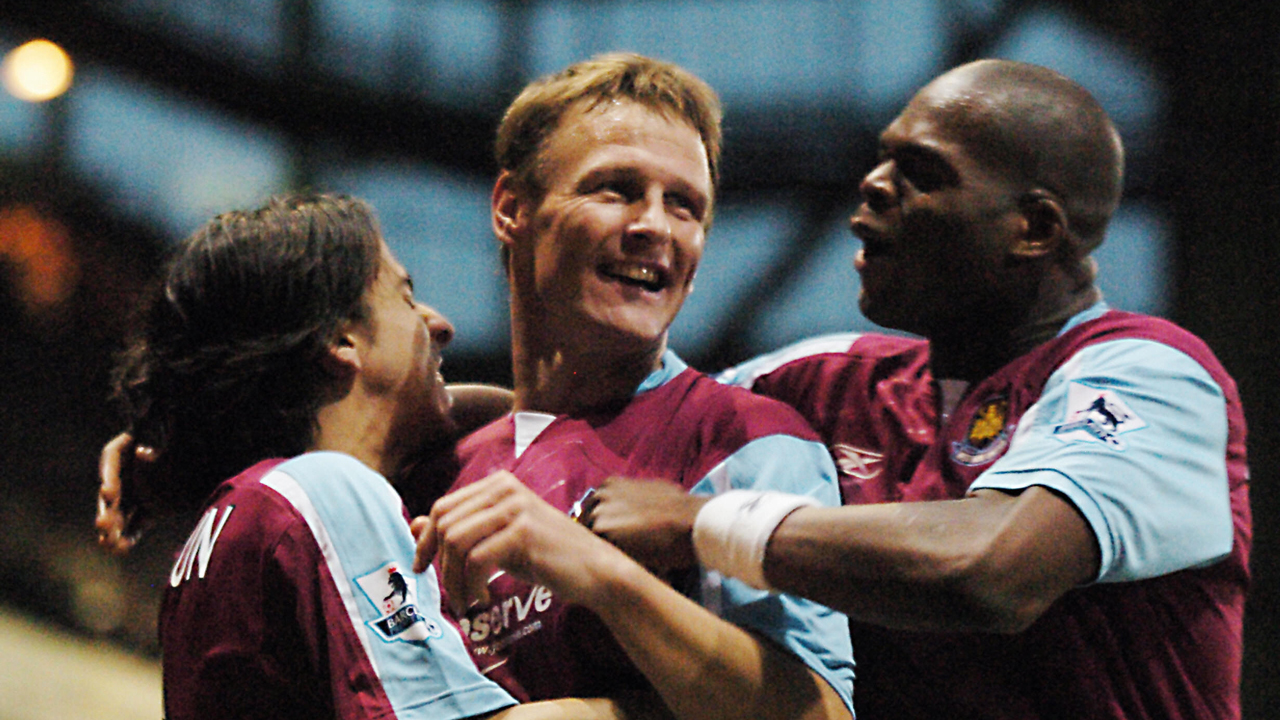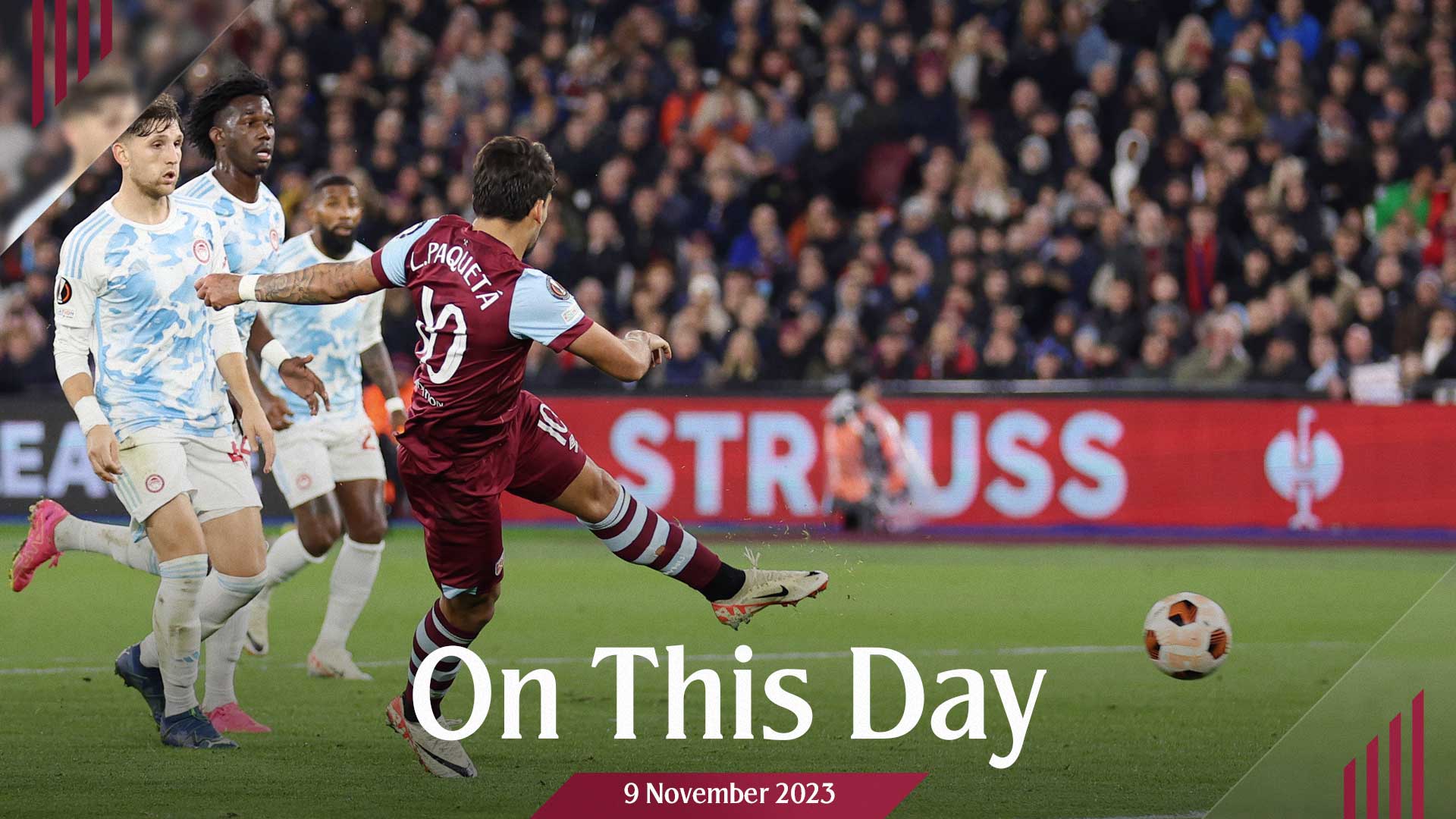West Ham United will travel to the United States for the 2025 Premier League Summer Series in July-August. As we look forward to crossing the Atlantic Ocean again, we look back on the Hammers' previous visits to America...
West Ham United visited North America for the fifth time in seven years for an incredible month-long, eleven-match post-season tour in the summer of 1971.
The Hammers had endured a 1970/71 season to forget in the First Division, winning just ten of their 42 league matches and finishing 20th of the 22 clubs, above only relegated Burnley and Blackpool.
Early exits from the League Cup and FA Cup, the latter a controversial 4-0 defeat at Blackpool that saw four players - Bobby Moore, Jimmy Greaves, Brian Dear and Clyde Best - disciplined and dropped by manager Ron Greenwood for visiting a night club, added to the feeling of gloom.
It was hoped that gloom would be lifted by the organisation of a tour that included stops in seven US cities, the Canadian city of Toronto and ended on Bermuda in the North Atlantic Ocean.
Even then, there was drama before the Irons - led by coaches John Lyall and Ernie Gregory and physiotherapist Rob Jenkins in the absence of manager Ron Greenwood - departed London on 23 May.
First, Moore was wrongly accused of withdrawing from representing a World XI against Moscow Dynamo in a testimonial for legendary Russia goalkeeper Lev Yashin, then Greaves announced his retirement.
In addition, Moore and his England teammate and fellow 1966 FIFA World Cup winner Geoff Hurst had international commitments to fulfil before jetting off. Both started for England in a 3-1 Home Championship win over Scotland at Wembley the night before departing, and had played a lot of football, following the 1970 World Cup finals in Mexico with over 45 appearances for club and country that season.
In a newspaper column for the London Evening News published on 14 May 1971, Hurst spoke of the ‘after-effects’ of playing for England in heat and at altitude the previous summer, and feeling ‘shattered’ psychologically after losing the quarter-final 3-2 to West Germany, having led 2-0.
“It’s a hell of a long time,” Hurst said of the Hammers’ own trip across the pond, but the striker dutifully reported for the tour alongside Moore, Billy Bonds, Clyde Best, Frank Lampard, Harry Redknapp and Pop Robson for the flight to New York’s John F. Kennedy International Airport, before catching a connecting plane to Denver, Colorado.
Moore, writing in his weekly column in the Daily Mirror, revealed he was hoping to watch Frank Sinatra’s farewell concert in Los Angeles, which West Ham would visit twice, on 13 June.
Before Ol’ Blue Eyes would take to the stage, the Hammers took to the pitch at Reed Street Stadium in Wheat Ridge, Colorado, on Friday 28 May, and beat the amateur Denver Kickers 7-1 in front of a 2,500 crowd. Hurst scored twice, as did Redknapp and Best, while Bonds also found the net.
From Denver, the squad flew further west to California and Oakland, where they faced Mexican club Necaxa on Friday 4 June. Best notched a hat-trick and set a goal up for Pop Robson, while Hurst scored again in a 5-1 victory.
Two days later, with John Ayris and Kevin Lock having joined the squad after helping England’s youth team win the 1971 UEFA European Under-18 Championship, the two clubs met for a second time at the Los Angeles Memorial Coliseum, in front of a ‘sparse crowd’ of just 5,787 spectators, and this time the Mexicans came out on top. Necaxa went 2-0 up, Hurst scored two goals in two first-half minutes to make it 2-2, then Miguel Angel Perrichon put Necaxa back in front before half-time. Best levelled at 3-3, but Francisco Linares settled a thrilling match in the Mexican team’s favour 15 minutes from time.
As if two games against Necaxa was not enough, West Ham then took on German Bundesliga club Rot-Weiss Essen three times in the space of five days.
The first meeting took place in San Francisco in front of 3,000 supporters on Wednesday 9 June and ended in a 1-1 draw, with Bonds scoring for the Hammers and Günter Fürhoff netting a penalty for Essen.
Two days later, having flown north to Washington, the two clubs battled to a 2-2 draw on artificial turf at Seattle High School Memorial Stadium, and later home to the Seattle Sounders NASL franchise. Watched by a state record crowd of 9,710, with the $10,500 proceeds going to the Washington State Junior Soccer Association, Hurst and Best twice put West Ham in front, but strikes from Helmut Liter and Willie Lippens twice pegged them back.
From there, the two squads hopped on another flight back down to California and the Los Angeles Memorial Coliseum, where they squared-off for a third time on Sunday 13 June. Essen prevailed 1-0 on a day arguably more famous for the release of the Pentagon Papers by the New York Times, revealing the extent of the United States’ secret involvement in Vietnam.
While the fallout from that crisis grew, West Ham boarded another plane, this time to Boston, Massachusetts. There, on Tuesday 15 June, they took on another amateur club side, Newton, at Dilboy Field in the suburb of Somerville, and won 6-0. Best scored two more goals, Hurst and Robson one each, and Ayris and 17-year-old Ade Coker also found the net.
Tour match number eight was played in Toronto, Canada, on Friday 18 June. Bologna, who had finished sixth in Italy’s Serie A in 1970/71, triumphed 1-0 in front of a 14,420-strong crowd.
The two clubs then travelled back to the United States, where Bologna scored a 2-1 victory over the Hammers at Roosevelt Stadium at Droyer’s Point in Jersey City, New Jersey, on Sunday 20 June. A missed penalty cost West Ham dear, as Hurst’s successful 77th-minute spot-kick was rendered a consolation, cheering the vast majority of Italian-Americans in the 4,000 crowd.
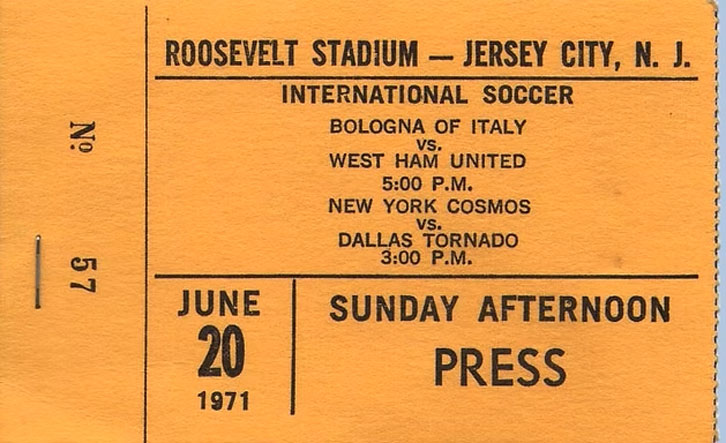
The final leg of the tour saw Lyall, Gregory, Jenkins and the squad - minus Hurst, who flew home for a two-week family holiday in the south of France - enjoy the warm breeze of Bermuda, a British Overseas Territory situated in the North Atlantic Ocean that centre-forward Best called home.
There, the players played two final ‘informal’ matches. The first, played against Bermudian Premier Division champions Pembroke Hamilton on 22 June, saw teenager Coker score five goals and Best mark his return home with two in a 7-0 win.
Best also scored two goals in the second against his own Bermuda National XI, which ended in a 2-2 draw, bringing the month-long tour to an end.
“We made up our minds that this tour was worthwhile and I believe we’ve been proved right,” said Lyall. “Trips like this build character in a side and our younger players particularly have gained experience they could not have gained so quickly elsewhere.”
And so, after taking 12 flights, travelling over 16,000 miles, playing eleven matches and scoring 34 goals, the Hammers arrived home in London at the end of June 1971.
Within weeks, they were back on the training pitches at Chadwell Health and Moore, Hurst, Best and company were in West Ham’s starting XI for their opening First Division fixture at home to West Bromwich Albion on 14 August.

